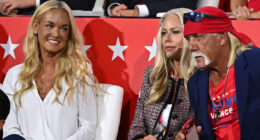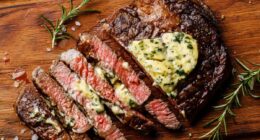Our overall health and wellbeing is influenced by a huge range of factors. Among these, diet is one of the most important.
Certain nutrients that come from our food are vital to ensure our bodies function at their best. While other foods can actually have a damaging effect especially when consumed in large quantities.
But with so many options in the supermarket, it can be overwhelming when trying to make healthy choices.
With this in mind, diet guru Dr Michael Mosley warned that certain foods can seem healthy but can actually do “more harm than good”.
The TV regular and podcaster, who is known for his 5:2 diet, revealed that many food items claim to be low in fat or free from “unhealthy” ingredients, but this could be misleading.
In a post on the Fast 800 blog last year, Dr Mosley wrote: “In a world full of food manufacturers, with clever marketing and a lack of science behind their claims, it can often become confusing to know exactly which foods are healthy when you’re navigating the supermarket.”
As reported by Bristol Live, he shared four foods to avoid, even though they’re marketed as healthier alternatives.
These are:
- Vegetable crisps
- Low-fat alternatives
- Porridge sachets
- Bottled salad dressings.
Vegetable crisps
These are often thought of as a healthier alternative to traditional potato crisps.
However, Dr Mosley says these thinly sliced veggies don’t offer much nutritional value.
In fact, they’re not really any better for you than regular crisps, he said, because they’re fried in lots of sunflower oil.
Instead, he recommended snacking on raw vegetables, nuts, seeds, or gut-friendly foods like sauerkraut and kimchi.
Low-fat alternatives
In recent decades low-fat alternatives were seen as a simple weight loss solution.
But scientific research has proven that full-fat foods can be good for us.
Low-fat products often have their nutrients removed and are filled with sugar and additives to replace the lost flavour.
“A study, carried out by researchers at Stockholm’s Karolinska Institute, tracked the diets of 20,000 women over a period of 20 years,” Dr Mosley said.
“The study found links between the consumption of full-fat dairy products (milk and cheese) and weight loss.
“Over a ten-year period, the women who regularly consumed full-fat milk saw a lower BMI.”
Porridge sachets
Porridge sachets are popular as a quick-to-prepare breakfast option.
Dr Mosley warned that one bowl of instant oatmeal can contain up to three spoonfuls of sugar, as some brands have a huge 16 grams of sugar per serving.
Bottled salad dressing
Although salads are a healthy choice, these dressings “have a significant amount of calories per serving”, and few people really stick to the recommended portion size.
Dr Mosley added: “They’re also packed with additives, to extend their shelf life, thickeners, hidden and other nasties that simply don’t belong in your cupboard!”
A healthier alternative would be to make your own using equal measures of olive oil and balsamic vinegar or lemon juice.









